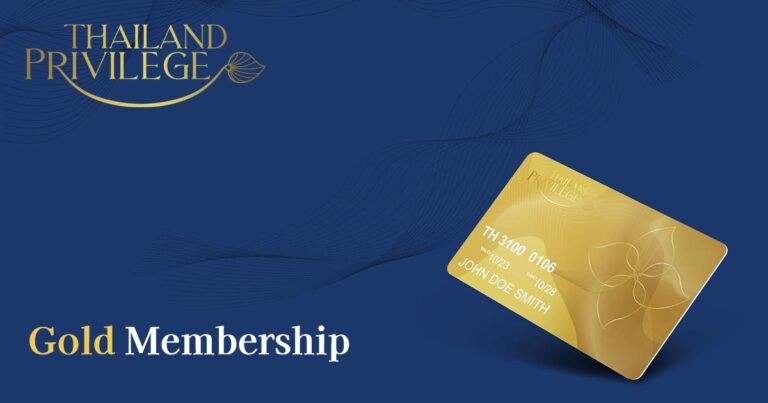Unveiling the Secrets of Thai Banking System
The Thai banking system is a unique and intricate landscape that requires thorough understanding to navigate effectively. With branch-specific policies, varying interpretations of rules, and specific procedures for each branch, it’s essential to be well-informed.
Additionally, required documents, minimum balance requirements, and fees differ between banks and account types. For expats and tourists, recommended banks such as Kasikorn Bank, Siam Commercial Bank, CIMB, and United Overseas Bank (UOB) offer distinct advantages.
This article provides detailed insights into opening accounts, foreign currency accounts, debit cards, ATMs, online banking, and mobile banking in Thailand.
Key Takeaways
- Thai banking system has unique aspects and branch-specific policies
- Required documents for banking procedures may vary and it’s best to bring everything
- Minimum balance requirements vary by bank and account type
- Recommended banks for expats and tourists include Kasikorn Bank, Siam Commercial Bank, CIMB, and United Overseas Bank (UOB)
The Unique Aspects of Thai Banking System
One unique aspect of the Thai banking system is the branch-specific policies and interpretations of rules that may vary between branches of the same bank. This means that customers may experience different procedures and requirements depending on the branch they visit.
For example, some procedures can only be carried out at the specific branch where the account was opened. Additionally, individual bank managers and employees may have different interpretations of rules, leading to inconsistencies in the application of policies.
It is important for customers to be aware of these variations and to ensure that they have all the necessary documents and information when visiting a branch. By understanding these branch-specific policies, customers can navigate the Thai banking system more effectively and avoid any surprises or delays in their banking transactions.
Understanding the Required Documents and Procedures
To successfully navigate the Thai banking system, it is crucial to understand the required documents and procedures, as they play a pivotal role in ensuring a smooth and efficient banking experience. Here are three key points to keep in mind:
- Required documents: While banks may have published guidelines on the required documents, it’s best to bring everything to be prepared. Commonly required documents include a passport, bank book, certificate of residence, work permit, or employment letter. Original documents are usually required, and some banks may even ask for certified passports from the Embassy.
- Complex procedures: When visiting a Thai bank for complex procedures, customers are often asked to sign unfilled forms. Bank employees may promise to fill in the necessary details later. However, customers can choose to fill out the form themselves and cross out any empty sections. Filling out the form yourself is acceptable and won’t cause any issues.
- Minimum balance and fees: Minimum deposit requirements vary by bank and account type. Most Thai banks require a minimum deposit of THB500 for savings accounts, while foreign currency accounts may require a minimum balance of US$5,000 for non-residents. To avoid bank maintenance fees, a minimum balance must be maintained in the account, with service fees typically being THB100 per month if the balance requirement is not met.
Minimum Balance Requirements and Fees in Thai Banks
Minimum balance requirements and fees are important factors to consider when banking in Thailand.
Most Thai banks require a minimum deposit of THB500 for savings accounts, while foreign currency accounts require a minimum balance of US$5,000 for non-residents.
In order to avoid bank maintenance fees, it is necessary to maintain a minimum balance in the account. Typically, service fees of THB100 per month are charged if the balance requirement is not met.
It is crucial for individuals to be aware of these requirements and fees in order to effectively manage their finances and avoid unnecessary charges.
Additionally, it is important to note that these minimum balance requirements and fees may vary between banks, so it is advisable to research and compare different banks before making a decision.
Recommended Banks for Expats and Tourists in Thailand
Based on customer feedback and reputation, Kasikorn Bank and Siam Commercial Bank are recommended options for expats and tourists in Thailand. These banks have proven to provide reliable and efficient services, making them popular choices among foreigners.
Here are three reasons why these banks are highly recommended:
- Kasikorn Bank:
- No minimum deposit is required to open an account.
- Known for its excellent customer service, it has high ratings at branches in Icon Siam, Central Embassy, and Sukhumvit 33.
- Offers quick and hassle-free issuance of passbooks and ATM cards upon approval of documents.
- Siam Commercial Bank:
- Well-established bank with a user-friendly mobile app and website.
- Possesses a strong reputation in Thailand’s investment banking industry.
- Provides SCB investment centers for stock brokerage accounts and offers competitive transaction fees compared to other countries.
Opening a Bank Account Without a Work Permit
Gaining access to the Thai banking system without a work permit can be a challenging task for expats and tourists.
While it is possible to open a bank account without a work permit, the difficulty may vary depending on the bank and branch manager. In some cases, additional documents such as a letter from the embassy may be required.
For those looking for guidance on where to open a bank account and obtain a credit card with a low salary, a premium subscription can provide assistance. Additionally, the Thailand Elite Visa allows for the opening of a fixed deposit account and credit card with Bangkok Bank.
It is important to note that while it is possible to open a bank account without a work permit, the process may require additional documentation and may vary depending on the bank and branch.
Foreign Currency Accounts in Thai Banks
Foreign currency accounts in Thai banks offer a convenient way for individuals to hold and manage funds in a foreign currency.
Here are three important things to know about foreign currency accounts in Thai banks:
- Exchange fees: Some banks charge high exchange fees for depositing or withdrawing funds in foreign currency. It is usually cheaper to remit USD into the account rather than exchanging it to THB.
- Transaction fees: Cash deposits or withdrawals in foreign currency may incur a 1% transaction fee. It is important to consider this fee when managing funds in a foreign currency account.
- Minimum balance requirements: Thai banks have minimum balance requirements for foreign currency accounts, which can range from US$5,000 to US$10,000. It is crucial to maintain the minimum balance to avoid any penalties or fees.
Debit Cards in Thai Banking System
Debit cards are a convenient and widely used payment method in the Thai banking system. They are typically issued when opening a current or savings account and can be used for various purposes such as online purchases, groceries, and fuel.
However, for international payments, it is necessary to set up the card with the bank to ensure it can be used on websites outside Thailand. Debit cards also provide the flexibility to make withdrawals and purchases while traveling abroad.
Compared to credit cards, debit cards are easier to obtain and are sufficient for many people’s financial needs. They offer a convenient and secure way to access funds and make transactions, making them an essential tool in the Thai banking system.
ATMs in Thailand: Versatility and Fees
With their versatility and convenience, ATMs in Thailand offer a wide range of banking services, while also charging reasonable fees for transactions. Here are some key points regarding ATMs in Thailand:
- Versatility: ATMs in Thailand allow users to perform various banking transactions, including cash withdrawal, balance inquiries, fund transfers, and bill payments. They are available 24/7, making it convenient for customers to access their funds at any time.
- Fee structure: ATM withdrawal fees in Thailand typically range from THB5 to THB25 when using a different bank’s ATM. However, withdrawing cash from an ATM in a different province, even within the same bank, may incur additional surcharges. Despite these fees, ATM fees in Thailand are significantly lower compared to other countries.
- Widely used: Thais heavily rely on ATMs for their banking needs, making them easily accessible throughout the country. This widespread usage ensures that ATMs are readily available and reliable for both locals and tourists alike.
Online Banking in Thai Banks
Most Thai banks offer online banking services to their customers, allowing them to conveniently manage their finances and conduct various transactions.
Online banking in Thai banks provides a range of features and benefits for account holders.
Customers can access their accounts 24/7, check their balances, view transaction history, transfer funds between accounts, and pay bills online. Online banking also enables customers to set up automatic payments, schedule future transactions, and receive electronic statements.
Security measures such as password authentication and one-time passwords (OTP) are implemented to ensure the safety of online transactions. Many Thai banks also offer mobile banking apps, providing even greater convenience and accessibility for customers to manage their finances on the go.
Mobile Banking: The Cashless Culture in Thailand
Mobile banking is becoming increasingly popular as Thailand embraces a cashless culture. With the convenience and accessibility of mobile phones, Thai banks have developed mobile apps that offer a range of services to their customers. Here are three key features of mobile banking in Thailand:
- Faster and simpler transfers and payments: Mobile banking allows users to easily transfer funds between their own accounts or to other individuals. It also enables quick and secure payments at retail stores and restaurants through QR code scanning.
- Integration with PromptPay: PromptPay is a government-initiated system that links mobile phone numbers to bank accounts, making it easy to transfer money using just a phone number. Mobile banking apps in Thailand are integrated with PromptPay, making money transfers even more convenient.
- Access to account information: Through mobile banking apps, users can check their account balance, view transaction history, and manage their finances anytime, anywhere. This provides a level of flexibility and control that traditional banking methods may not offer.
As Thailand continues its transition to a cashless society, mobile banking is expected to play a significant role in shaping the future of banking in the country.
Frequently Asked Questions
What Are the Common Challenges Faced by Foreigners When Opening a Bank Account in Thailand?
Common challenges faced by foreigners when opening a bank account in Thailand include branch-specific policies, varying interpretations of rules, extensive document requirements, minimum balance requirements, and potential language barriers.
Are There Any Specific Procedures That Can Only Be Carried Out at the Branch Where the Account Was Opened?
Some procedures in Thai banking can only be carried out at the branch where the account was opened. This branch-specific policy is important to consider when conducting certain transactions or seeking assistance from bank employees.
What Are the Minimum Deposit Requirements for Savings Accounts in Thai Banks?
The minimum deposit requirements for savings accounts in Thai banks vary, but most banks require a minimum deposit of THB500. Foreign currency accounts typically require a minimum balance of US$5,000 for non-residents.
Which Banks in Thailand Are Recommended for Expats and Tourists, and What Are Their Unique Features?
Recommended banks for expats and tourists in Thailand include Kasikorn Bank, known for its popular credit cards and quick account setup; Siam Commercial Bank, with a user-friendly mobile app and investment centers; CIMB, offering competitive interest rates; and United Overseas Bank, providing privileges for wealth banking customers.
Is It Possible to Open a Bank Account in Thailand Without a Work Permit, and What Additional Documents May Be Required?
Yes, it is possible to open a bank account in Thailand without a work permit. The additional documents required may include a letter from the embassy. Premium subscription provides guidance on where to open an account and credit card with low salary.
Conclusion
In conclusion, understanding the nuances of the Thai banking system is crucial for expats and tourists looking to navigate the landscape effectively.
Thai banks operate with branch-specific policies and interpretations of rules, and required documents for banking transactions can vary. Minimum balance requirements and fees also differ between banks and account types. To avoid bank maintenance fees, it is important to maintain a minimum balance in the account.
Recommended banks for expats and tourists in Thailand include Kasikorn Bank, Siam Commercial Bank, CIMB, and United Overseas Bank (UOB).
Additionally, opening a bank account without a work permit, using debit cards, accessing ATMs, utilizing online banking, and embracing mobile banking are all important aspects of the Thai banking system to be aware of.







